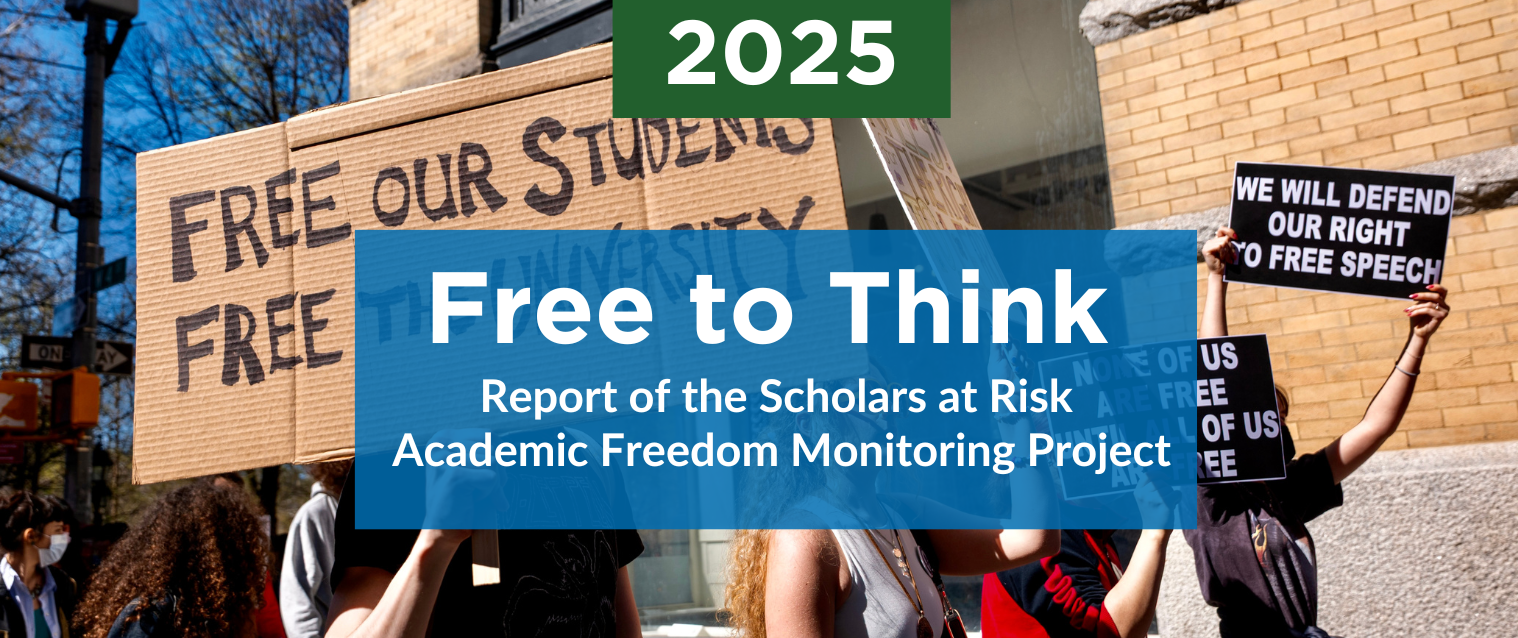Scholars at Risk Releases Free to Think 2025
Scholars at Risk (SAR) has published Free to Think 2025, its annual survey of attacks on higher education. Covering July 1, 2024–June 30, 2025, the report documents 395 incidents across 49 countries and territories, underscoring that pressures on universities are intensifying in both authoritarian and traditionally liberal contexts.
Key findings at a glance
Widening geography of risk: While violence and repression persist in authoritarian settings, SAR notes a marked rise in constraints within democracies where elected leaders have moved to curb university autonomy and academic freedom.
Country snapshots:
Afghanistan: The Taliban has removed women, minorities, and dissenting voices from universities under the guise of staffing changes.
Serbia: Faculty who supported student-led anti-corruption protests faced research restrictions and threats to salaries and university funding.
United States: Since January 2025, federal actions—ranging from executive orders and funding revocations to investigations and policy directives—have targeted admissions, hiring, research agendas, speech policies, and finances. Incident counts rose sharply compared to pre-2023 levels.
Bangladesh: Student protests against a government-jobs quota met force described by the UN human rights office as “brutal, systematic repression,” with mass injuries and significant fatalities among students.
Campus protest rules: New restrictions on demonstrations appeared in multiple settings, including India and the U.S., often tightening “time, place, and manner” policies and penalties.
Global trendlines: Data from the Academic Freedom Index (AFi) shows continued contraction of academic freedom in numerous countries, including some listed in this year’s report.
Why it matters
SAR emphasizes that universities function as engines of research, innovation, and informed public discourse. Attacks—ranging from violence and imprisonment to policy interference and travel limits—erode teaching and research quality, chill speech, and undermine democratic institutions.
SAR’s call to action
The report urges:
Awareness: Read and share the report; invest in training, measurement, and monitoring of academic freedom.
Solidarity: Build coalitions among institutions to anticipate and withstand pressures.
Protections: Adopt and implement legal frameworks such as the Principles for Implementing the Right to Academic Freedom (2024).
Method and scope
Incidents are verified through multiple sources and categorized (e.g., killings/violence/disappearances, wrongful imprisonment/prosecution, travel restrictions, loss of position, and systemic “other” constraints). SAR notes that lower reported counts in some countries may reflect successful repression, self-censorship, or data scarcity, not improved conditions.
Read the full report: Free to Think 2025 — Scholars at Risk Academic Freedom Monitoring Project

